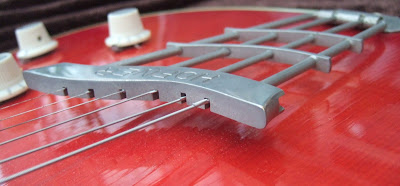The Short Answer: No
The Better Answer: Yes
It has to be said that making music without "knowing how" is often a claim to fame of those who may well know very little, but certainly are pretty much suggesting it all came naturally and aren't I such a genius.
The truth is you can do that...make stuff up and it pays to do so...but it doesn't always work out well in the long run. More often than not those who claim no knowledge actually have a great deal and are humble bragging or being disingenuous and slightly deceitful. If they genuinely have a low opinion of themselves, it's likely the case that they will admit ignorance and the need for knowledge when it's clear they want to learn something.
The key to being a good musician is always being willing to learn and learning an instrument comes with technical jargon, methodology and frameworks of knowledge that, when understood, provide enlightenment and tools for better production and delivery of music.
Music Theory is a tool to understanding how things work, why things are like they are and how to break the rules with knowledge, rather than just breaking them and attempting great things through guesswork and ignorance.
Music Theory is a Tool
I would draw an analogy between learning music theory and the grammar of a language. You need not necessarily learn the grammar in order to learn to speak your first, primary language, but in order to learn a second language it is important to learn the grammar in order to understand the rules which govern it's construction.
Music is a language, and music theory helps us understand the correct use and construction of it, in order to be able to communicate our ideas with others - whether it's your audience or other musicians. So just as you cannot single out a specific component of the grammar of a language as being more useful than another - nor indeed the most useful - neither is it possible to take any element of music theory in isolation and compare it to the rest or identify it as being more useful than the rest.
Melody, Harmony,
Rhythm and Form
The components of music are rhythm, melody, harmony and form. Each of these sub-topics needs to be studied in order to gain a full picture of what music actually is and how to actually make use of each part.
There is a relationship between these elements and music theory helps you understand that relationship.
If you want to understand how rhythm, melody, harmony and form all combine, and are crafted together then theory gives you that knowledge.
I'd recommend studying what rhythm, melody and harmony and form are, and how they relate to one another. You need to discover why rhythm is placed first, followed by melody and then harmony. Form is structural knowledge, why do songs have Verses and Chorus's etc. These ideas create Transition, Dynamics, Colour and Contrast. They form a transition which in many ways echoes how mankind first discovered music.
Listening to natural sounds makes you quickly realize that rhythm is inherent to all of them - even those with no apparent melodic content. Yet even percussive sounds are actually note pitches - albeit too low in pitch to be immediately identified as such. And the chorus of all the sounds is equivalent to the harmony. But it is the rhythm which creates a stopping and starting point for each note, as well as its duration relative to the other notes.
The theory of music provides certain rules and guidelines for how each of the elements of music behave and combine, in order to create recognizable music - rather than a cacophony, which is musical chaos.
Polyphony, Chords and Scales
Once you start to recognise Chords as a Guitar Player knowing how they fit together is key to writing and playing well. Without that Theoretical knowledge you are forever guessing and although you can learn by ear alone it helps to understand through "Knowledge" how things work to be able to adapt, build and adjust and write music to for yourself.
Many beginners fail to learn theory and build up fears or find themselves hitting a brickwall because they cant progress beyond where they are without it. Although Chords and Scales are seen as "Boring" by some the truth is everything is necessary and you have to like it or lump it and suck it up and learn it if you want to progress as a musician who plays Guitar. This is especially the case if you want to get good, get professional and get paid.
The strategy for progress looks like this
- Learn Basic Chords
- Learn the Basic Music Theory behind Chords, Scales, Notes and Intervals
- Learn the Basic Music Theory behind Rhythm
- Learn to Read Notation
- Learn to Write Notation
- Learn to develop Chord and Scale knowledge
- Across all of the above Learn to Play, Sing and Hear the Notes / Chords and Scales in comparison to one another for Ear and Voice Training.
Don't Fear Music Theory
So don't Fear Theory, Embrace it as a Tool and use it to make your self a better Musician and for creating better music!



Comments
Post a Comment